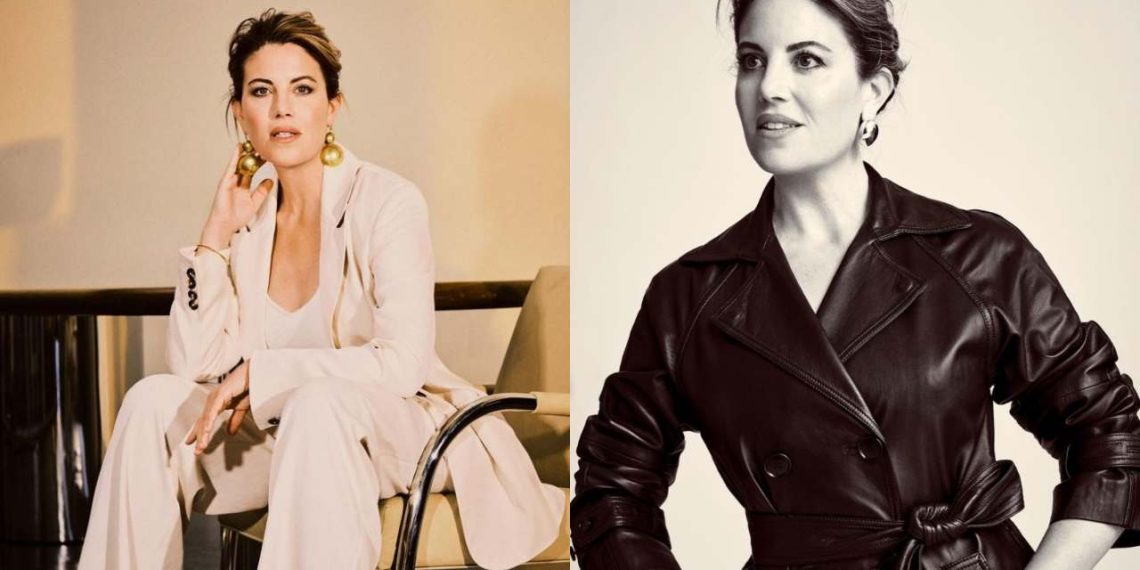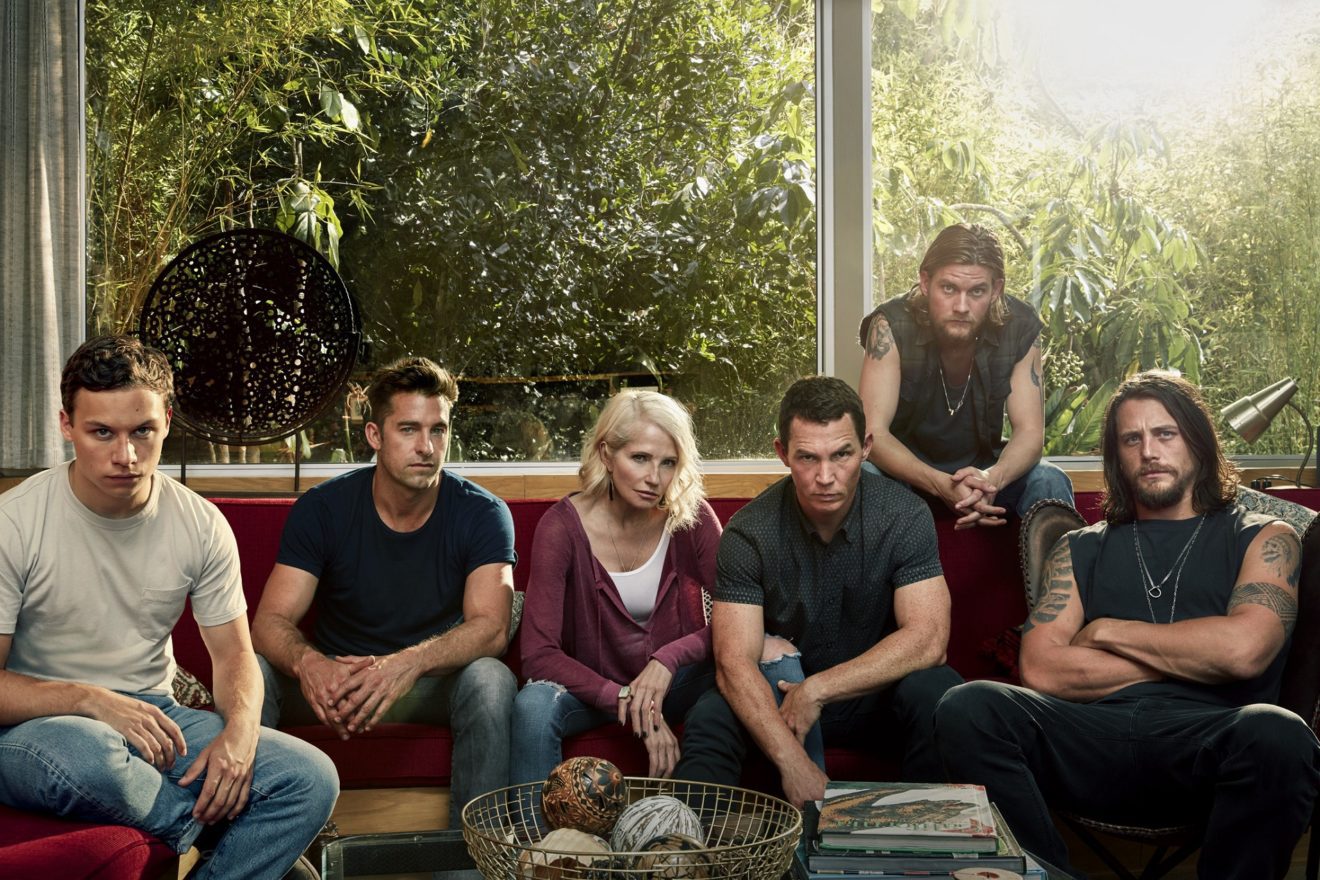The other evening, Monica Lewinsky found herself en route to a work dinner, confronted with the quintessential L.A. scenario: transforming her car into her impromptu dressing room. Reflecting on the necessity, she remarks,
“If you’re going past the 405, you’re going to stay there.”
When pondering what to pack, she instinctively leaned towards a recent ensemble featured in Reformation’s latest campaign, released that day.
“I noticed it was because I feel good about myself in it,” she explains. “I felt strong, I felt confident.”

Monica Lewinsky holds a special place as a personal hero for many women across Gen X, millennial, and Gen Z demographics. Lauren Cohan, Reformation’s chief creative officer, counts herself among them.
One of the compelling factors she cited in proposing Lewinsky as a brand ambassador was the profound impact of her name, eliciting what Cohan describes as “the universal jaw drop.”
Cohan’s admiration for Lewinsky spans nearly a decade, stemming from her viewing of Lewinsky’s TED talk on public shaming, which has garnered over 21 million views.
“I was like, ‘Whoa, this woman is incredibly funny and smart and also a Ref babe,’ and that was the bullseye.”
Reflecting on the genesis of their collaboration, Cohan reveals,
“Six months ago, I started ruminating on how we could make a collaboration happen.”
She envisioned Lewinsky as the ideal face for the brand’s voting-centric “You’ve Got the Power” workwear campaign, lensed by Zoey Grossman. The unfolding of events, she describes, was serendipitous.
“I had been trying to find a way to connect with Monica and a mutual friend of ours said, ‘Oh, I actually just had dinner with her last week.’She put us together, and Monica and I met, and I tried to convince her with cashmere—just smiles and Ref cashmere.”
As Lewinsky joins the call, her radiance shines through, adorned with red lipstick and donning a white button-down, playfully navigating her status as a Gen Xer amidst evolving technology. Instantly charming everyone in the conversation, Lewinsky’s presence is disarmingly genuine.
Engaged from the campaign’s inception, she initially harbored reservations about being in front of the camera.
In response, the brand enlisted a movement coach to aid her comfort, although, according to Cohan, “she was a natural.” Reflecting on the experience, Lewinsky shares,
“I don’t know if this will sound corny, but I think a way that women can feel more empowered is by recognizing places where they may need more assistance and asking for that assistance.”
For the third consecutive election, Reformation embarks on a project to rally its customers towards voting.
This year, the brand joins forces with Vote.org on a dedicated landing page, aiming to enhance voting accessibility and pledge donations to the organization. Lewinsky finds inspiration in the campaign’s core concept.
“We’ve seen in polls that voter frustration is up and apathy is up,” she observes. “We all have to be reminding each other that we can’t let that get in the way of needing to vote, that that’s how we use our voice. That’s where our power is.”
Over the years, Lewinsky has diligently nurtured her voice and influence, emerging as a staunch anti-bullying advocate and gaining prominence as a Twitter personality, amassing 1.1 million followers. Reflecting on her journey, she recalls,
“When I first signed on a decade ago, I would not send a tweet unless I had three people sign off on it.”
Since then, she has expanded her digital presence considerably, even amidst the platform’s transition following its acquisition by Elon Musk and its transformation into X. Surprisingly, Lewinsky has no plans to disengage.
In fact, she has honed the art of safeguarding her mental well-being on X.
“I am a huge, huge proponent of blocking,” she asserts. “You want to say something, that’s your prerogative. I don’t have to listen to you.”
Additionally, she steers clear of negative comments.
“I take myself out of conversations that people have included me in without my permission, which is fine. They’re allowed to do that. It’s just that most people don’t want to be brought into a conversation that is inappropriate to be a part of.”
Lewinsky abides by another steadfast principle:
“I may make all sorts of comments about policy or someone’s choice of behavior, but I will not repost a picture, even if I loathe that person, where they’re making fun of someone’s appearance, because I just think that it doesn’t contribute to me as a person. I try to be mindful. Now,” she chuckles, “my drafts folder might be a whole other story.”
Lewinsky has observed that oftentimes, attacks directed towards her stem from the pain of the attacker, exemplifying the adage “hurt people hurt people.”
Recalling a past incident, she recounts,
“Someone made a shitty comment to me.”
However, her followers swiftly came to her defense.

“What unfolded, because one of those people had shown a little compassion towards this guy, was that his wife had recently passed away. I chimed in just like, ‘I’m sorry for your loss,’ some version of that,” she reminisces, noting how this simple gesture brought the situation to a more humane level.
Lewinsky remains acutely aware of the online disinhibition effect, where individuals often exhibit behavior far worse than their real-life selves behind the shield of a screen. While acknowledging the sense of community the digital age has brought, a luxury her generation never experienced, she reflects,
“If you didn’t fit in at school before, tough luck. Where were you supposed to find your people?”
As an adult, the digital realm has afforded her opportunities for reinvention and the discovery of allies. Yet, she remains dismayed by the persistence of online bullying.
“I don’t know why our ability to connect with people all around the world hasn’t translated yet to more global kindness,” she laments.
Having reached the milestone of 50 this past summer, Lewinsky exudes a newfound sense of self-assurance. Reflecting on her journey, she shares,
“I was apprehensive about turning 49, because 39 was a really shitty year for me, and I struggled to turn 40. I ended up with a real gift: It was a year of acceptance. I was able to accept so much about myself and my life and where I am, and so that meant coming into 50 was great.”
Despite her past traumas, she approaches this new decade with excitement and hope, acknowledging the fear that accompanies such optimism.





